17 January 2022
How Rwanda is making its cities resilient and providing its people with secure, healthy futures

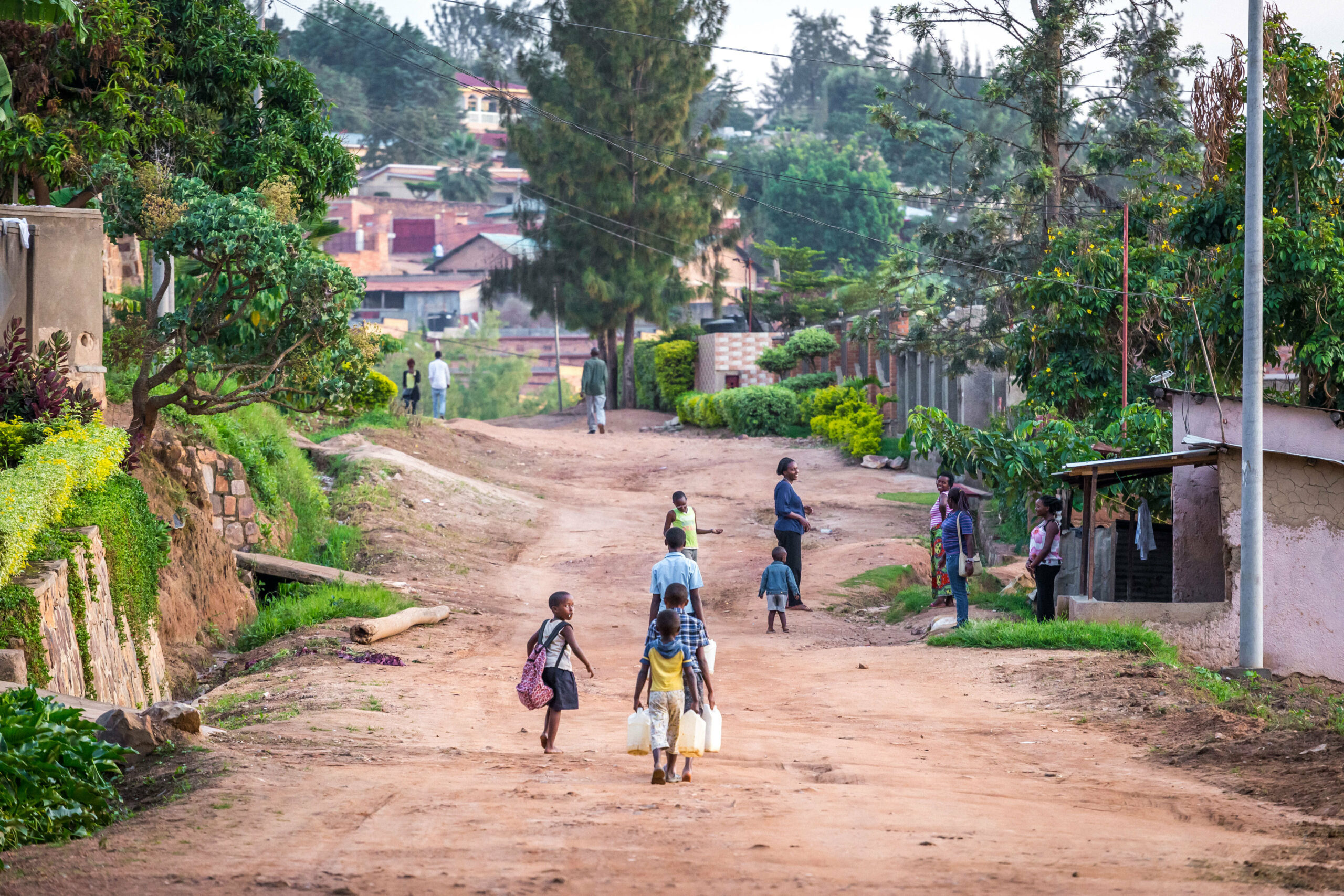

Rwanda has ambitious plans for taking climate action and its cities are feeding into these plans with tangible actions that will not only contribute to the country’s overall climate goals, but also provide the growing urban population with the type of infrastructure projects that will increase their quality of life while protecting the environment.
Here are stories from the Urban-LEDS project implementation 2017-2021 in Rwanda and three of the participating Districts: Kigali, Muhanga and Rubavu.
Climate action plans to bring on-the-ground change
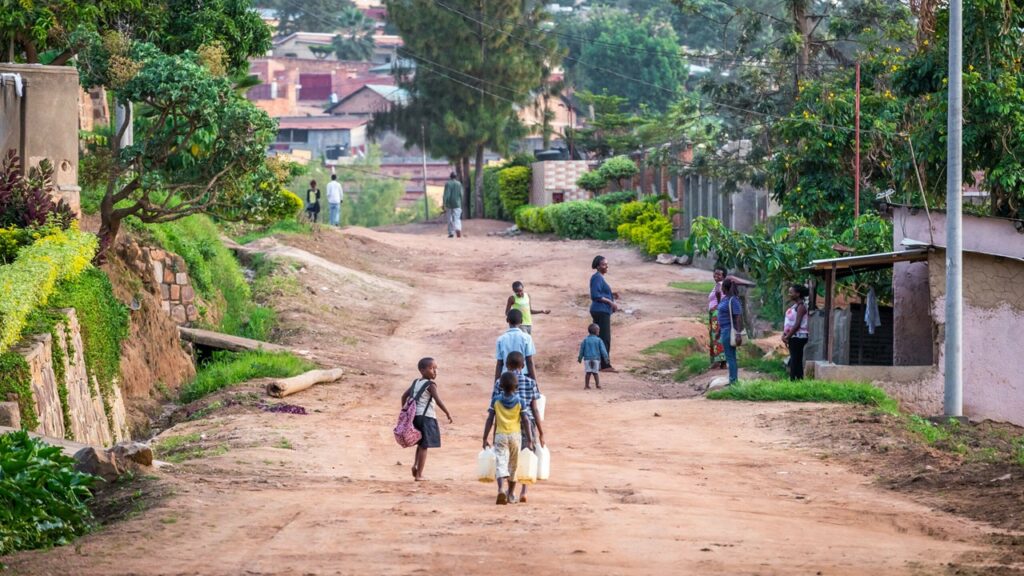
For cities in Africa, climate action planning is a crucial first step in getting low emission development projects off the ground. This is relevant for smaller cities and districts, like Muhanga and Rubavu, but also for large cities like the capital of Kigali.
As part of the Urban-LEDS II project, all three these cities recently completed, and got council approval for, an Integrated Climate Action and Low Emission Development Plan. Importantly, these plans align with the Nationally Determined Contribution (NDC) for Rwanda, which means it’s more likely the actions outlined in these plans will receive funding to turn them into a reality.
The plans developed for Kigali, Rubavu and Muhanga are particularly practical, focusing on how each city can implement climate actions that will benefit the city and country, while allowing officials to continue delivering on their mandates. The plans outline a number of actions the cities can take that are guaranteed to build resilience and ensure the city is prepared for future shocks, while limiting emissions as it grows. The focus is both on households and industry and include actions like implementing solar and hydro mini-grid systems, replacing traditional light bulbs with LED lamps, recovering and reusing organic waste to restoring soils, treating wastewater and reusing treated water and switching to sustainable pest management techniques.
Building resilience during a pandemic

Cities are the first responders to most shocks, as we’ve seen during the ongoing COVID-19 pandemic. This is why the ReCAP21 project supports cities in Rwanda, among others, to build climate resilience amid such a global challenge. The Rwandan cities taking part have been involved in co-designing and receiving resilience training to ensure their needs are met. Muhanga, the project’s deep-dive city, is also defining specific recovery actions that are included in their climate action plans. The District is receiving project concept development support for retrofitting health centres to have more sustainable water and energy management. These project proposals will then receive support to ultimately be submitted to potential funders.
The ReCAP21 project also provided all the participating cities with the chance to engage with different levels of government and officials for different sectors, virtually, in a manner that promotes open, honest conversation and where all participants are considered equal regardless of their designation. Opening the channels of communication in the way is key in driving the collaboration needed to ensure coordinated, resilient recovery.
ReCAP21 is a joint initiative brought to you by the Deutsche Gesellschaft für Internationale Zusammenarbeit (GIZ) GmbH, ICLEI – Local Governments for Sustainable Development (ICLEI), Resilient Cities Network (R-Cities) and Cities Alliance.
As part of the Urban-LEDS II project, all three these cities recently completed, and got council approval for, an Integrated Climate Action and Low Emission Development Plan. Importantly, these plans align with the Nationally Determined Contribution (NDC) for Rwanda, which means it’s more likely the actions outlined in these plans will receive funding to turn them into a reality.
The plans developed for Kigali, Rubavu and Muhanga are particularly practical, focusing on how each city can implement climate actions that will benefit the city and country, while allowing officials to continue delivering on their mandates. The plans outline a number of actions the cities can take that are guaranteed to build resilience and ensure the city is prepared for future shocks, while limiting emissions as it grows. The focus is both on households and industry and include actions like implementing solar and hydro mini-grid systems, replacing traditional light bulbs with LED lamps, recovering and reusing organic waste to restoring soils, treating wastewater and reusing treated water and switching to sustainable pest management techniques.
Accessing funding to bring climate actions to life
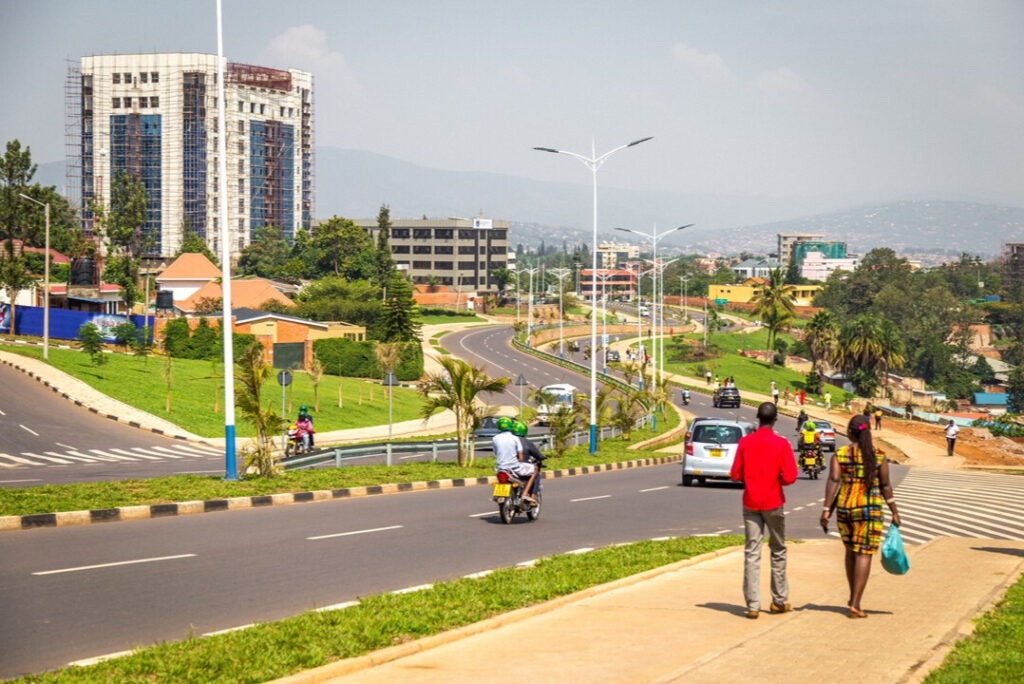
Cities are the first responders to most shocks, as we’ve seen during the ongoing COVID-19 pandemic. This is why the ReCAP21 project supports cities in Rwanda, among others, to build climate resilience amid such a global challenge. The Rwandan cities taking part have been involved in co-designing and receiving resilience training to ensure their needs are met. Muhanga, the project’s deep-dive city, is also defining specific recovery actions that are included in their climate action plans. The District is receiving project concept development support for retrofitting health centres to have more sustainable water and energy management. These project proposals will then receive support to ultimately be submitted to potential funders.
The ReCAP21 project also provided all the participating cities with the chance to engage with different levels of government and officials for different sectors, virtually, in a manner that promotes open, honest conversation and where all participants are considered equal regardless of their designation. Opening the channels of communication in the way is key in driving the collaboration needed to ensure coordinated, resilient recovery.
ReCAP21 is a joint initiative brought to you by the Deutsche Gesellschaft für Internationale Zusammenarbeit (GIZ) GmbH, ICLEI – Local Governments for Sustainable Development (ICLEI), Resilient Cities Network (R-Cities) and Cities Alliance.
As part of the Urban-LEDS II project, all three these cities recently completed, and got council approval for, an Integrated Climate Action and Low Emission Development Plan. Importantly, these plans align with the Nationally Determined Contribution (NDC) for Rwanda, which means it’s more likely the actions outlined in these plans will receive funding to turn them into a reality.
The plans developed for Kigali, Rubavu and Muhanga are particularly practical, focusing on how each city can implement climate actions that will benefit the city and country, while allowing officials to continue delivering on their mandates. The plans outline a number of actions the cities can take that are guaranteed to build resilience and ensure the city is prepared for future shocks, while limiting emissions as it grows. The focus is both on households and industry and include actions like implementing solar and hydro mini-grid systems, replacing traditional light bulbs with LED lamps, recovering and reusing organic waste to restoring soils, treating wastewater and reusing treated water and switching to sustainable pest management techniques.
Strengthening the urban dimension in the Rwanda’s NDC process
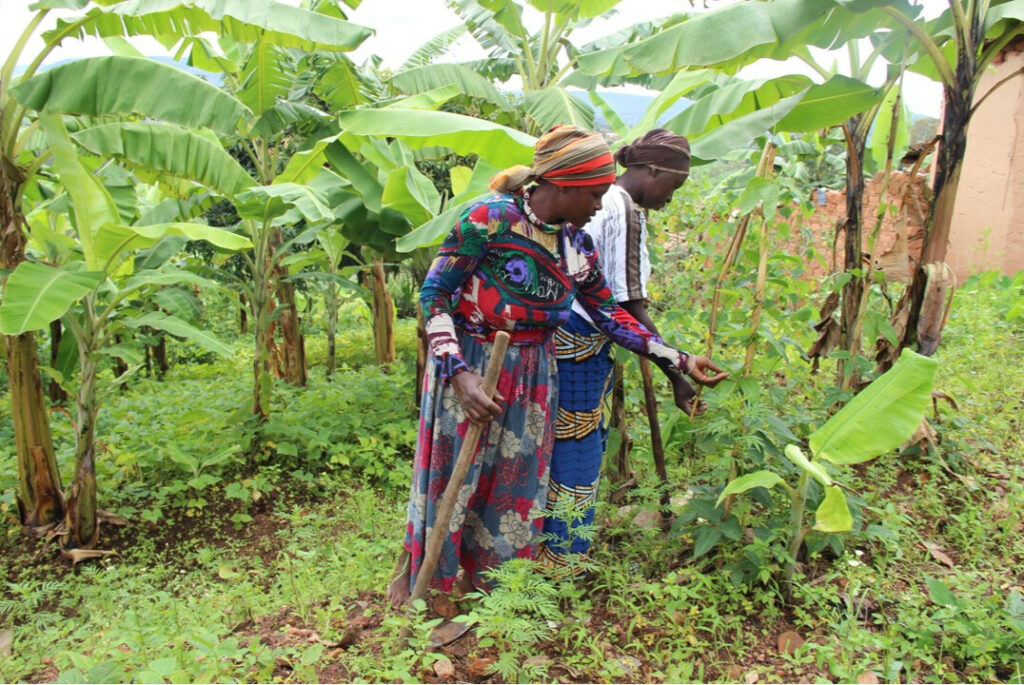
Cities are the first responders to most shocks, as we’ve seen during the ongoing COVID-19 pandemic. This is why the ReCAP21 project supports cities in Rwanda, among others, to build climate resilience amid such a global challenge. The Rwandan cities taking part have been involved in co-designing and receiving resilience training to ensure their needs are met. Muhanga, the project’s deep-dive city, is also defining specific recovery actions that are included in their climate action plans. The District is receiving project concept development support for retrofitting health centres to have more sustainable water and energy management. These project proposals will then receive support to ultimately be submitted to potential funders.
The ReCAP21 project also provided all the participating cities with the chance to engage with different levels of government and officials for different sectors, virtually, in a manner that promotes open, honest conversation and where all participants are considered equal regardless of their designation. Opening the channels of communication in the way is key in driving the collaboration needed to ensure coordinated, resilient recovery.
ReCAP21 is a joint initiative brought to you by the Deutsche Gesellschaft für Internationale Zusammenarbeit (GIZ) GmbH, ICLEI – Local Governments for Sustainable Development (ICLEI), Resilient Cities Network (R-Cities) and Cities Alliance.
As part of the Urban-LEDS II project, all three these cities recently completed, and got council approval for, an Integrated Climate Action and Low Emission Development Plan. Importantly, these plans align with the Nationally Determined Contribution (NDC) for Rwanda, which means it’s more likely the actions outlined in these plans will receive funding to turn them into a reality.
The plans developed for Kigali, Rubavu and Muhanga are particularly practical, focusing on how each city can implement climate actions that will benefit the city and country, while allowing officials to continue delivering on their mandates. The plans outline a number of actions the cities can take that are guaranteed to build resilience and ensure the city is prepared for future shocks, while limiting emissions as it grows. The focus is both on households and industry and include actions like implementing solar and hydro mini-grid systems, replacing traditional light bulbs with LED lamps, recovering and reusing organic waste to restoring soils, treating wastewater and reusing treated water and switching to sustainable pest management techniques.
Making a lasting impact in Rwanda’s cities
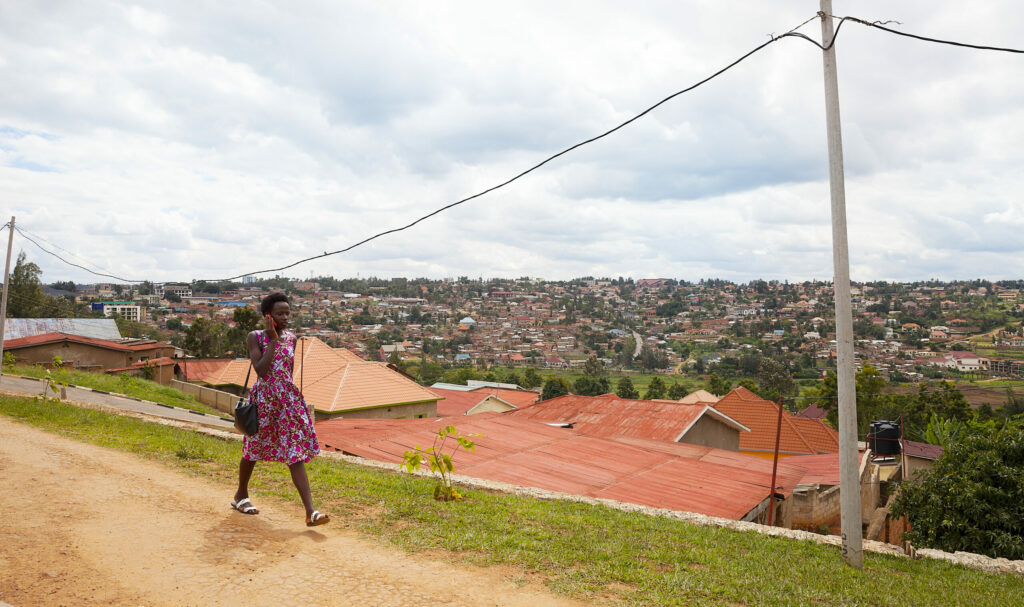
While the Urban-LEDS II and ReCAP 21 projects have both come to an end, these stories illustrate that the types of actions taken and support given focused on lasting solutions, not fleeting improvements. It empowered city officials with practical training, implemented sustainable infrastructure upgrades and made policy change to ensure cities receive their due recognition in national climate action planning.
Urban-LEDS II is financed by the European Union and is jointly implemented by UN Habitat and ICLEI – Local Governments for Sustainability.


